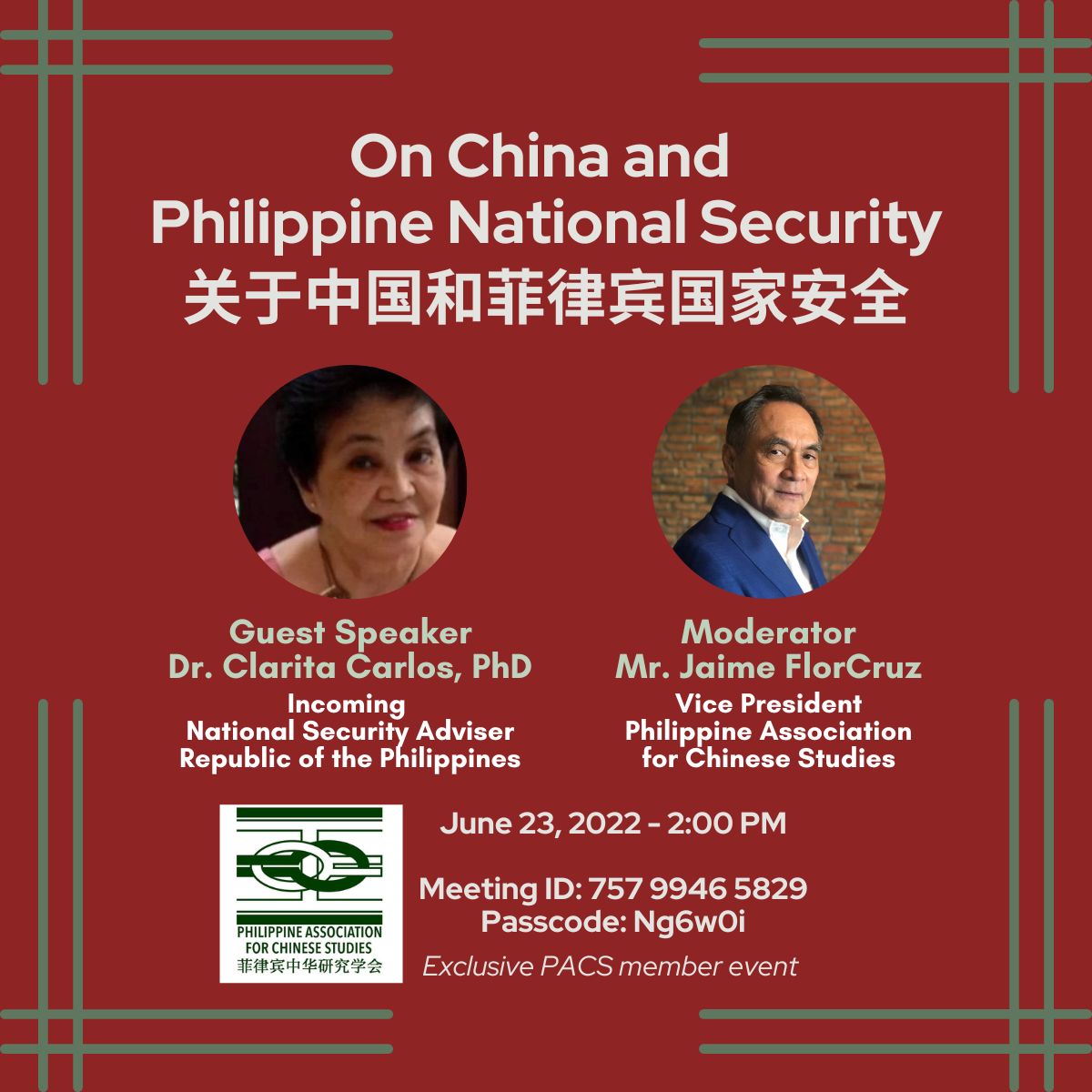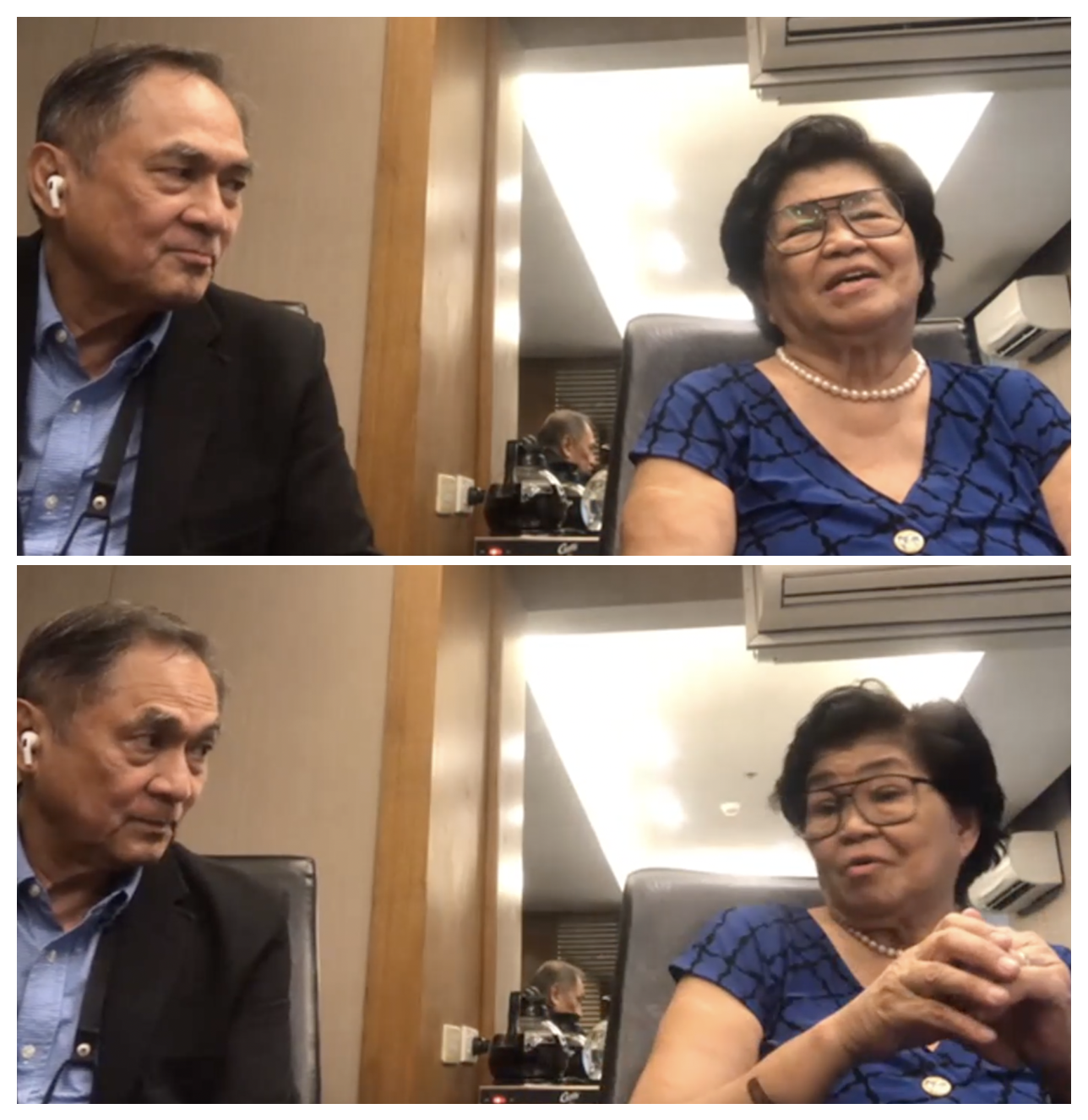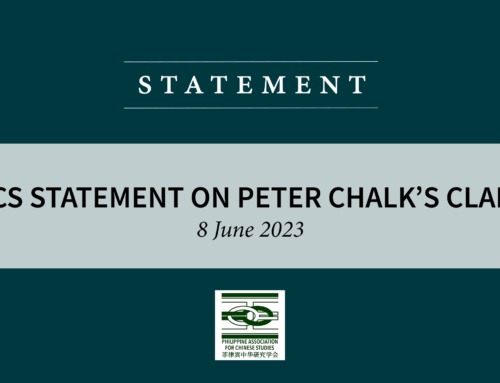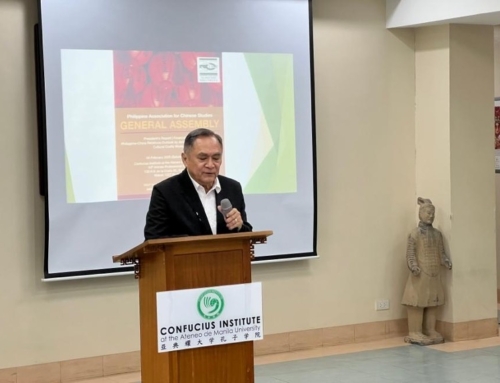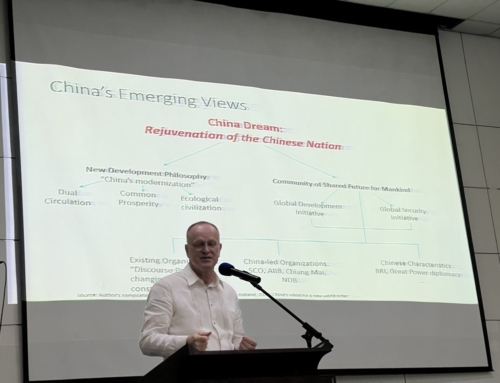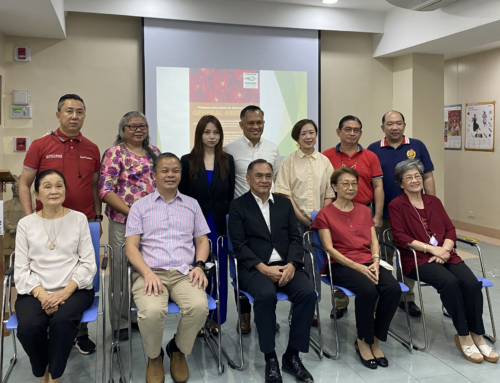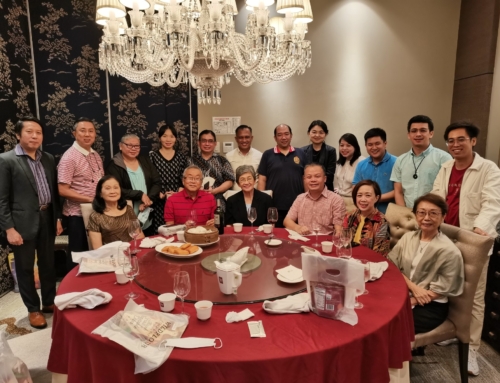In a closed-door online session arranged by PACS immediate past president Dr Rommel Banlaoi, incoming National Security Adviser Dr Clarita Carlos engaged close to thirty members of PACS in a free-wheeling discussion of security issues surrounding Philippines-China relations expertly moderated by PACS Vice-President Mr Jaime FlorCruz.
After brief opening remarks by new PACS President Fr Ari Dy, SJ, Dr Carlos immediately presented a helpful political framework for engaging China. She differentiated between low and high politics, the latter referring to hot button issues like the territorial dispute between the two countries. Relations at that level are very formal and the high stakes for both sides usually mean that progress comes very slowly. On the other hand, low politics refers to people-to-people exchanges in education, culture, and other areas of cooperation where personal relationships are established and nurtured, creating a friendlier environment for the high politics when goodwill and trust have been established.
When Jaime FlorCruz remarked that President-Elect Ferdinand Marcos Jr has strongly reaffirmed the sovereignty claims of the country in the West Philippine Sea and strong relations with the United States, Carlos was very quick to retort that at the same time, Mr Marcos has referred to China as “our strongest partner and neighbour.” She cited historical examples of concrete assistance from China, and the need for both sides to be very patient with each other in crafting not only a shared future but a shared present.
In a personal vignette, Dr Carlos shared that her maternal great grandfather was a Chinese national who married a Filipina, explaining why some members of her family look very Chinese. We should build on the cultural and genetic links between Filipinos and Chinese, she said. She also recalled past visits to China when she undertook research partnerships, and marvelled at the fast pace of development in the country. These ties balanced her view on geopolitics, as her training was at the University of the Philippines and Cornell University in New York.
In previous press interviews, Dr Carlos had shared her broad view of national security, not limiting it to military and security issues, but anchoring it on human security. In this vein, food and energy, she said, are the biggest security threats in the future. “No one wants to go to war,” she said, and “the new arena of conflict” now takes place in cyberspace because so much harm can be done there, citing financial-hacking as one example. She intends to set up teams on biosecurity and cybersecurity on top of territorial security.
Asked if the Philippines should worry about China’s investments in the country’s critical infrastructure such as power, telecoms, and airports, she said that the same suspicion can be applied to any country that invests in the Philippines. These should not be given political colour, but focus on effectiveness and efficiency to support the business sector. The same thinking can be applied to the perceived threat of “debt traps,” because intelligent Filipinos will be negotiating all these agreements and will not allow our country to be disadvantaged.
Asked for her advice to PACS members, she said that people-to-people exchanges must continue to flourish. For example, many undergraduate and graduate programs in China’s top universities are now taught in English, and more Filipinos should know about and avail of them. Academic and cultural exchanges must continue as forms of low politics so that the high politics can also be influenced and steps towards friendly resolutions can be taken.
She encouraged all “to surface the issues that endear us to the Chinese” because it is not naive to conceive of the South China Sea as a zone of neutrality and peace. “Ideas are very powerful,” she said. “They are the whispers of a future which can be realized.”
